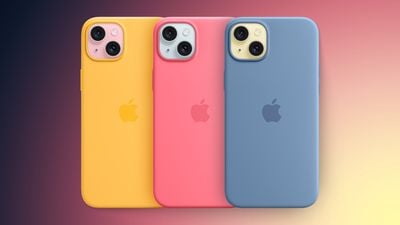FCC Fines AT&T, T-Mobile and Verizon Almost $200 Million for Illegally Sharing Customer Location Data
The United States Federal Communications Commission (FCC) today announced [PDF] that it has fined AT&T, Verizon, and Sprint/T-Mobile $196 million collectively for illegally selling access to customer location information without consent.

Sprint and T-Mobile (now merged into T-Mobile) have been fined $12 million and $80 million, respectively. Verizon has been fined almost $47 million, and AT&T has been fined more than $57 million.
The FCC first began investigating the four major U.S. carriers in 2019 after they were found selling real-time location information from customer devices to third-party data aggregators, which led to that location data being sold a second time to private investigators, bounty hunters, law enforcement agencies, credit card companies, and more.
Following the investigation, the FCC confirmed that wireless carriers had violated federal law by sharing consumer location data. Fines were proposed back in 2020, but carriers were given an opportunity to provide evidence and legal arguments against the decision before the fines were formally imposed.
The fines vary based on the length of time that each carrier sold access to customer location information without safeguards, and the number of entities that were provided access. The FCC determined that carriers were obligated to protect the personal information of their customers, which they did not do.
"Our communications providers have access to some of the most sensitive information about us. These carriers failed to protect the information entrusted to them. Here, we are talking about some of the most sensitive data in their possession: customers' real-time location information, revealing where they go and who they are," said FCC Chairwoman Jessica Rosenworcel. "As we resolve these cases - which were first proposed by the last Administration - the Commission remains committed to holding all carriers accountable and making sure they fulfill their obligations to their customers as stewards of this most private data."
The four carriers had different practices, but each carrier relied on contract-based assurances that the data aggregators purchasing the real-time location information would get consent from customers before accessing their location, which did not happen. Even after learning that data was being misused in this way, the FCC says the carriers "continued to sell access to location information without taking reasonable measures to protect it from unauthorized access."
Popular Stories
The long wait for an Apple Watch Ultra 3 appears to be nearly over, and it is rumored to feature both satellite connectivity and 5G support.
Apple Watch Ultra's existing Night Mode
In his latest Power On newsletter, Bloomberg's Mark Gurman said that the Apple Watch Ultra 3 is on track to launch this year with "significant" new features, including satellite connectivity, which would let you...
The iPhone 17 Pro Max will feature the biggest ever battery in an iPhone, according to the Weibo leaker known as "Instant Digital."
In a new post, the leaker listed the battery capacities of the iPhone 11 Pro Max through to the iPhone 16 Pro Max, and added that the iPhone 17 Pro Max will feature a battery capacity of 5,000mAh:
iPhone 11 Pro Max: 3,969mAh
iPhone 12 Pro Max: 3,687mAh...
The upcoming iPhone 17 Pro and iPhone 17 Pro Max are rumored to have a slightly different MagSafe magnet layout compared to existing iPhone models, and a leaked photo has offered a closer look at the supposed new design.
The leaker Majin Bu today shared a photo of alleged MagSafe magnet arrays for third-party iPhone 17 Pro cases. On existing iPhone models with MagSafe, the magnets form a...
Apple's next-generation iPhone 17 Pro and iPhone 17 Pro Max are just over two months away, and there are plenty of rumors about the devices.
Below, we recap key changes rumored for the iPhone 17 Pro models.
Latest Rumors
These rumors surfaced in June and July:Apple logo repositioned: Apple's logo may have a lower position on the back of the iPhone 17 Pro models, compared to previous...
Apple's position as the dominant force in the global true wireless stereo (TWS) earbud market is expected to continue through 2025, according to Counterpoint Research.
The forecast outlines a 3% year-over-year increase in global TWS unit shipments for 2025, signaling a transition from rapid growth to a more mature phase for the category. While Apple is set to remain the leading brand by...
iOS 26 and iPadOS 26 add a smaller yet useful Wi-Fi feature to iPhones and iPads.
As spotted by Creative Strategies analyst Max Weinbach, sign-in details for captive Wi-Fi networks are now synced across iPhones and iPads running iOS 26 and iPadOS 26. For example, while Weinbach was staying at a Hilton hotel, his iPhone prompted him to fill in Wi-Fi details from his iPad that was already...
Apple today seeded the second betas of upcoming iOS 18.6 and iPadOS 18.6 updates to public beta testers, with the betas coming just a day after Apple provided the betas to developers. Apple has also released a second beta of macOS Sequoia 15.6.
Testers who have signed up for beta updates through Apple's beta site can download iOS 18.6 and iPadOS 18.6 from the Settings app on a compatible...




















